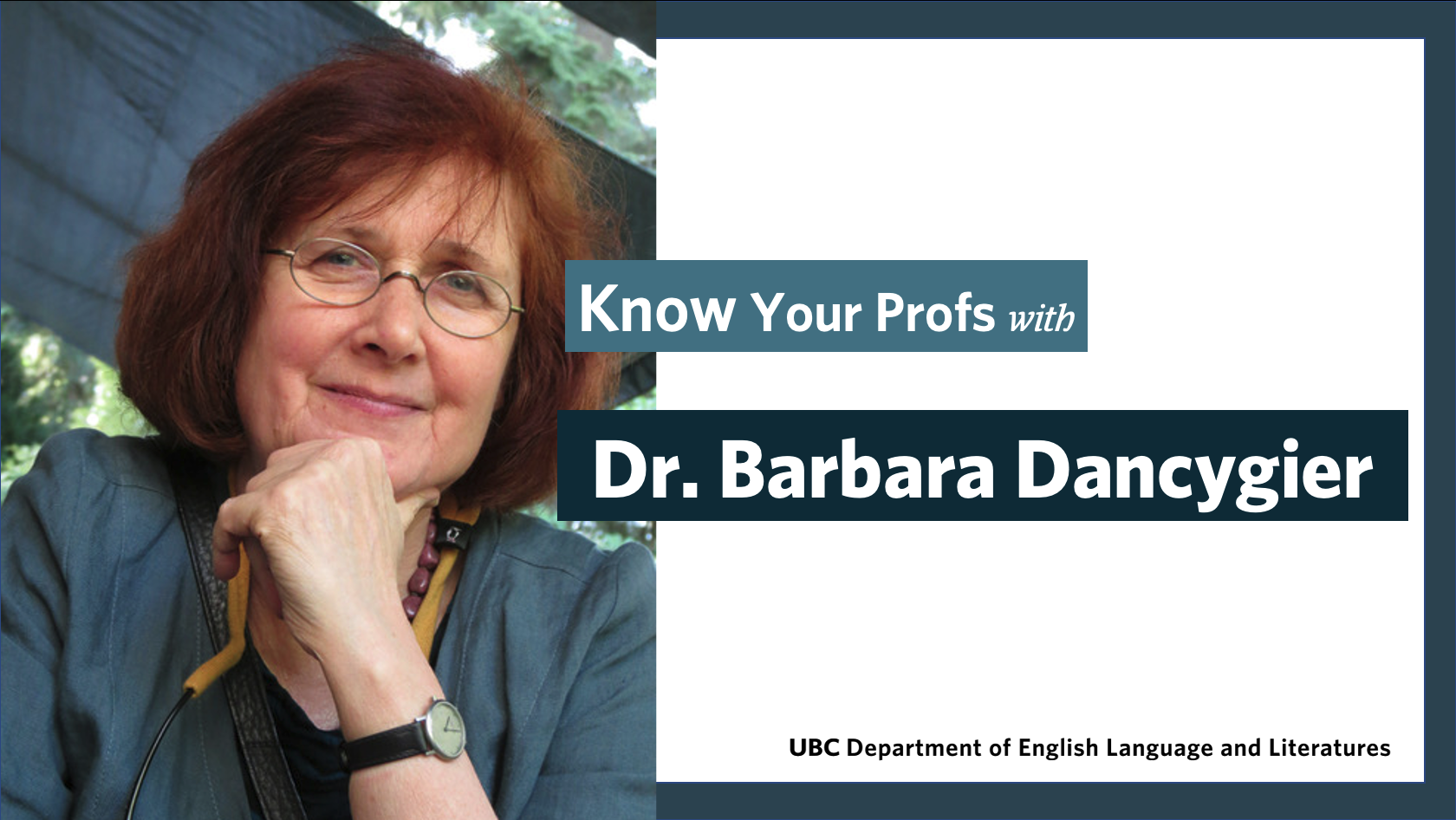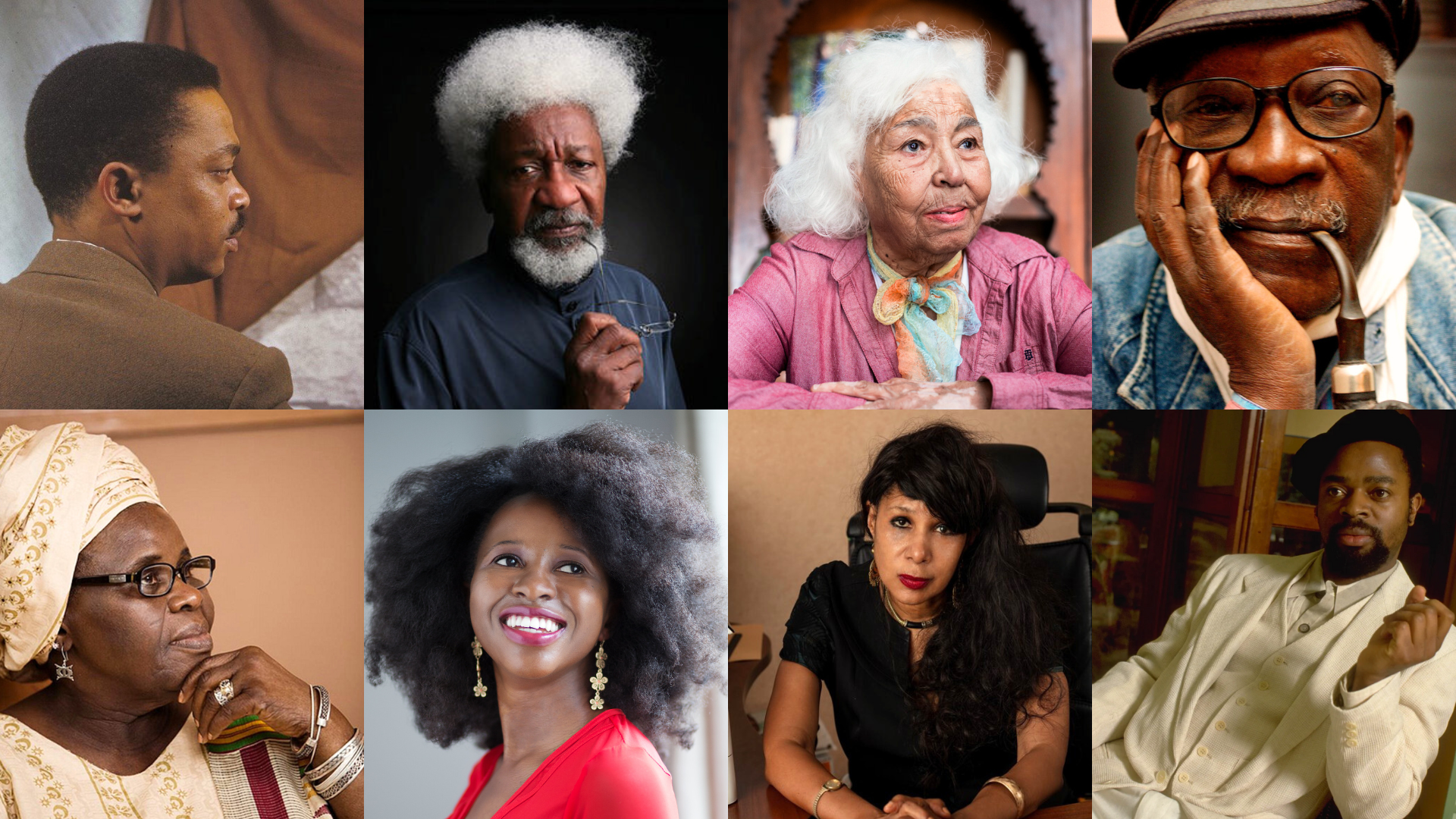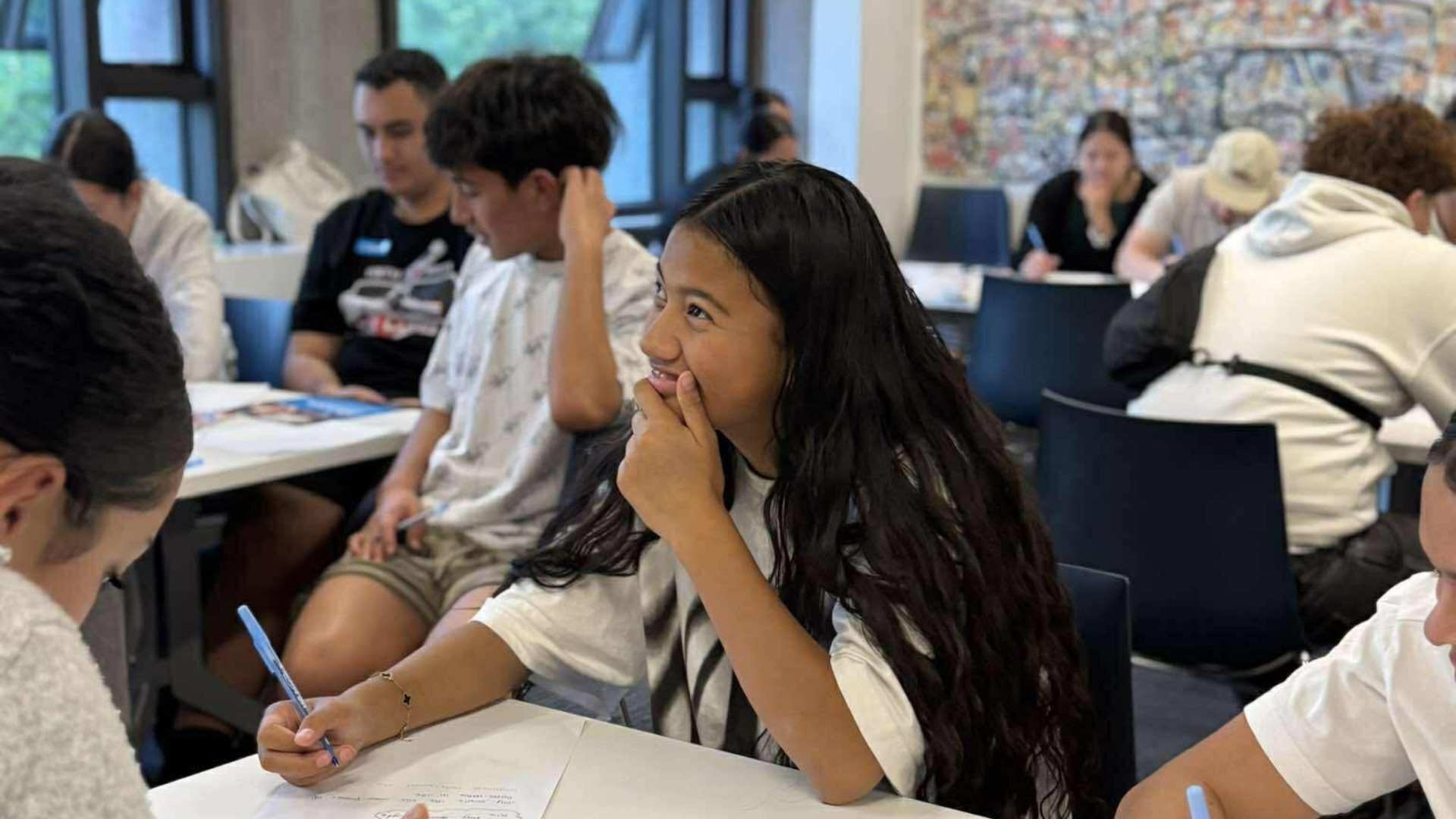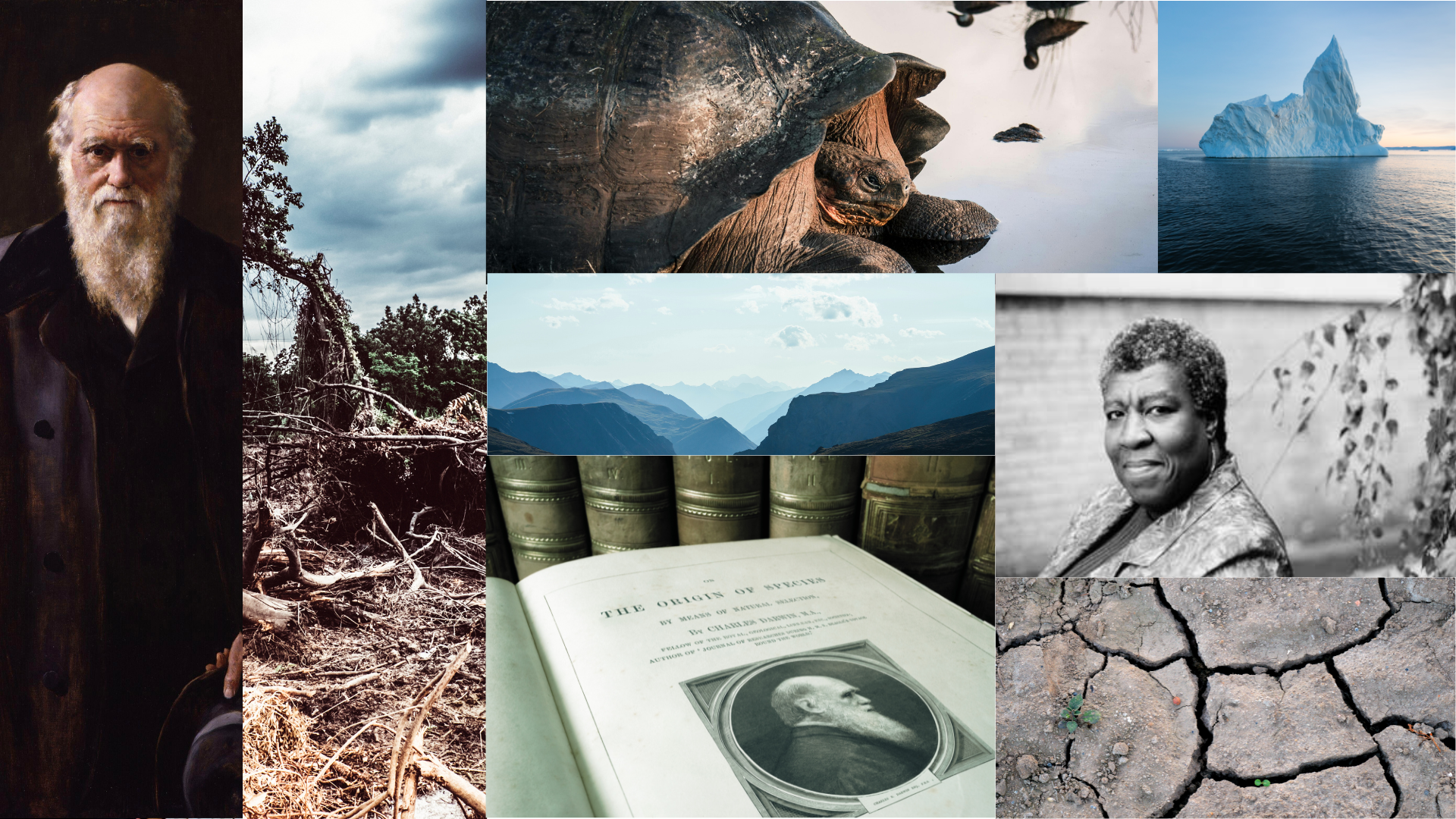

Who are your English Language and Literature professors, really? What can you expect from taking their classes, and what are the values that inform why they teach what they do?
The Know Your Profs series is meant to help you get to know your professors in their own words. This series is for you if you’re thinking of taking a course taught by a professor you don’t know very well, if you’re an Honours student or graduate student looking for a thesis supervisor, or if you simply want to know more about your favourite professors in the Department of English Language and Literatures.
Dr. Barbara Dancygier specializes in cognitive linguistics. Her recent scholarly interest is understanding how we interpret multimodal artifacts, especially in contemporary media. In her course on language of the media, students have a chance to look at a range of forms of multimodal communication, including news, political campaigns memes, creative advertisements, and internet campaigns. In this instalment of Know Your Profs, Dr. Dancygier reminds us language is infinitely flexible, and so is meaning. She also shares why studying the English language when it’s your second or third language can add nuance to the experience.
What is your area of specialization, and when did you know academia was for you?
I’m a linguist specializing in cognitive linguistics and poetics. I had originally enrolled to study American literature. But in our program we were taught both literature and language studies, and my interests shifted. I realized that I was becoming more and more excited about language when I stopped seeing it as a set of rules, but rather as a wonderfully complex and flexible system, where everything worked together to create meaning. That’s how I decided to focus on linguistic meaning. This led me gradually to cognitive linguistics, which is a system of cognitively inspired tools for analyzing meaning emergence in all kinds of contexts. Discovering the methodology was my illumination – I knew I had to go on thinking in this way.
What does it mean to you to study literature?
It means finding something new to think about every day. I read quite a lot, and I read for pleasure, but each literary text I read makes me notice something new in the author’s language choices, and each such innovation pushes me to think about the limits of our theoretical explanations, regarding both literature and language. But, while looking at literary creativity is fascinating, it is not the only area of creativity to enjoy studying – hence my interest in all forms of communication.
What do you like about teaching UBC students?
My UBC students are really good at two things I cherish – observing language use around them, and connecting meaningful experiences in unexpected ways. It really gives us a lot to talk about.
What is something students ask you about a lot?
Many of my students know other languages intimately, and they sometimes worry whether their intuition is adequately specialized to let them talk about meaning in English in depth.
My native language is Polish, and sure, you may sense it in the way I speak. But knowing another language has not been a limitation for me. On the contrary, it made it easier to see the specificity of the English language, and, frankly, it increased my admiration for its deceptive simplicity and its creative flair. I am constantly discovering things about English that are fascinating. I think we all can enjoy such discoveries, regardless, or perhaps because, of the language we learned as children.
Which courses do you teach?
I have taught many descriptive courses, but now I mostly teach cognitive approaches to meaning. ENGL 328 teaches a theory called Conceptual Metaphor Theory – a way to understand how language is deeply metaphorical, without becoming poetic all the time.
My more recent course, Cognitive Poetics, looks at how meaning emerges in literary genres and other texts, and also theatre and film.
This year I am also teaching a new course on the language of the media, looking closely at contemporary media discourse, such as news, political commentary, campaigns, but also forms of multimodal communication such as memes, creative advertisements, internet campaigns, etc. We are now totally immersed in images, and understanding how we extract meaning from multimodal artifacts is a fascinating way to understand contemporary culture.
What can students expect from your classes, and what do you want them to know about your courses?
Students can expect to learn to use analytical concepts and look at various texts, examples, and artifacts to understand how they work for us. They can also expect to search for and work with examples they find intriguing. Because we consider a broad range of examples, it prepares everyone to see things with a fresh eye, as we are continually exposed to new situations and forms of communication.
My classes are also about learning to see how communication is imbued with ‘perspective’, and what linguistic or visual choices contribute to our understanding of viewpoint, beyond persuasion.
Students will need to keep an open mind and a healthy dose of curiosity when they step into my classroom. I would advise them to leave their expectations about the predictability of language at the door. There is a certain comfort to knowing there are specific things to be learned about language, but language is amazingly flexible, and so is our way to process meaning. I feel it is more important to learn how to approach communicative creativity, innovation, and variety. That requires a bit of thinking ‘on your feet’.
What advice would you give your first-year and graduating undergrad self?
I’d tell myself this: don’t make final decisions about your scholarly direction too quickly, but once you make them, be prepared to go all the way. And then, don’t be afraid to try something new. Often it pays off to learn something even if you end up spending most of your time on something else, because things you have learned allow you to connect the dots in your own way.


